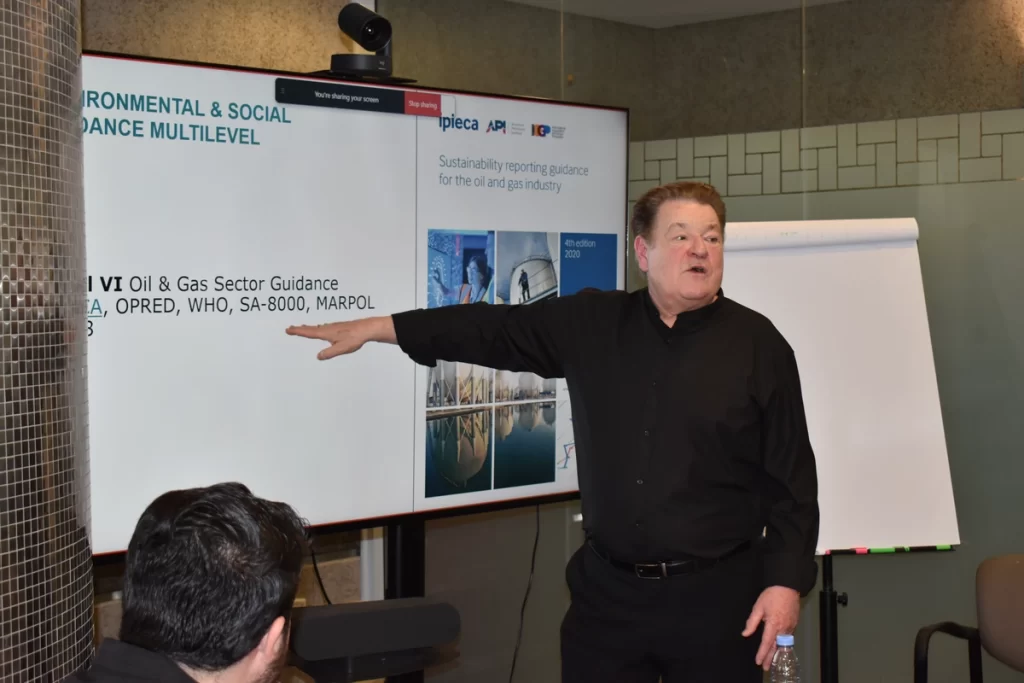
Beyond Compliance: Staterra’s Multi-Level Approach to Environmental Regulations in Saudi Arabia
Is your project in Saudi Arabia facing regulatory uncertainty? With environmental requirements becoming increasingly complex, many companies find themselves caught between local regulations, regional, international standards, and client-specific expectations with regard to standard engineering procedural guidelines.
The cost of regulatory confusion is high, delayed permit issuance, project setbacks, and even complete work stoppages.
However, there’s a strategic approach that transforms these challenges into opportunities.
The regulatory maze facing Saudi projects
Saudi Arabia’s environmental regulatory landscape has evolved dramatically in recent years since the dissolution of the General Authority for Meteorology and Environmental Protection – GAMEP in 2020.
Projects now face oversight from multiple authorities including the National Centre for Environmental Compliance (NCEC) and the Royal Commission for Jubail and Yanbu (RCJY), each with similar though distinct requirements and processes.
International standards add another layer of complexity, with lenders and investors increasingly requiring compliance with global frameworks such as the Equator Principles and World Bank IFC Performance Standards.
Meanwhile, initiatives including the Saudi Vision 2030 and the Saudi Green Initiative are raising the bar for environmental performance across all industrial and business sectors including oil and gas, land development. power generation, transportation, mining and renewable energy.

Staterra's Seven-Level Compliance Framework
At Staterra, we've developed a comprehensive seven-level approach to environmental and social compliance that ensures no requirement is overlooked:
The foundation of our approach addresses client-specific requirements such as Saudi Aramco's Environmental Protection (SAEP) and Environmental Standards (SAES), which meet and often exceed regulatory minimum environmental compliance trigger values for both emissions to atmosphere and effluent water discharge.
This level addresses foundational regulatory requirements established by Saudi Arabian authorities, particularly the Royal Commission Environmental Regulations (RCER) 2015 Volume I and NCEC requirements.
This level incorporates international guidelines from institutions such as the World Bank and International Finance Corporation in particular Performance Standards 1-8, establishing global best practices for environmental engineering and social management (Reference SA-8000 Social Accountability International – SAI).
Our framework extends to include primarily all international guidelines but specifically World Bank International Finance Corporation Performance Standards I-VIII.
The 2030 Agenda for Sustainable Development, adopted by all United Nations (UN) members in 2015, created 17 world Sustainable Development Goals (SDGs). The aim of these global goals is "peace and prosperity for people and the planet", while tackling climate change and working to preserve oceans and forests. The SDGs highlight the connections between the environmental, social and economic aspects of sustainable development.
MARPOL 73/78 is an international convention for the prevention of pollution from ships, with six annexes covering various sources of pollution, including oil, noxious liquid substances, harmful substances in packaged form, sewage, garbage, and air pollution.
The International Standards Organisation - ISO is an independent, non-governmental, international standard development organisation composed of representatives from the national standards organisations of member countries. Membership requirements are given in Article 3 of the ISO Statutes.
Multi-Level Compliance Business Benefits
Our approach delivers tangible benefits to clients operating in Saudi Arabia:

- Regulatory certainty: navigate complex regulatory landscapes with confidence, reducing the risk of unexpected delays or compliance issues.
- Accelerated permitting: secure necessary approvals without time-consuming revisions or supplemental submissions.
- Enhanced stakeholder confidence: demonstrate commitment to environmental responsibility, building credibility with communities, authorities, and investors.
What’s coming in Part 2
We hope you enjoyed this first part of our ‘Going Beyond Compliance‘ series. You’re now ready to jump to the next chapter, where we’ll take you inside Saudi Arabia’s environmental permitting processes, revealing the specific steps required for NCEC and RCJY approvals, common pitfalls that delay permits, permit application fee structure and proven strategies for accelerating the approval process. Just click away!
